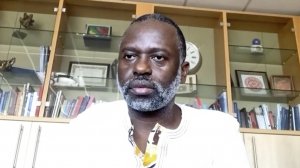In 2020, the world found itself in a state of flux. A global pandemic disrupted the world order while the digital transformation that is the Fourth Industrial Revolution (4IR), with its challenges and huge potential benefits, presented a fundamental paradigm shift.
In a crisis, decisive leadership is imperative for the public good, but as we move beyond the pandemic and confront the changes of the 4IR, we must determine how we will adapt. What is clear is that leadership will have to be grounded in scientific and mathematical thinking and in good governance. It follows, then, that for South Africa to succeed as a nation in the 21st century we must be able to provide our people with an all-embracing education – not just science and technology but human and social sciences as well.
Leading in the 21st Century presents a comprehensive overview of how the world is changing and draws lessons from leaders, particularly in the African context. From Charlotte Maxeke and the Rain Queen Modjadji, to Mangaliso Robert Sobukwe, Eric Molobi and Richard Maponya, there is much to learn from great leaders.
The challenges of the 21st century are immense – from climate change to social media and the digital divide that deepens our understanding of inequality, particularly in the ‘new normal’. South Africa faces not only a shifting global context but a fraught local context of stagnant growth, rising unemployment and deep-seated inequality, worsened in 2020 by the national lockdown necessitated by the coronavirus pandemic.
The 4IR offers solutions to many of our most pressing problems and South Africa cannot afford to be left behind. A leader needs 4IR thinking, which entails the following skills: complex problem solving, critical thinking, creativity, people management, coordinating with others, emotional intelligence, judgement and decision making, service orientation, negotiation and cognitive flexibility.
As a leading academic of international standing and Deputy Chair of South Africa’s Presidential 4IR Commission, Tshilidzi Marwala provides valuable insights into how leadership should be responding to the digital challenges of the 21st century. In this book, Marwala deciphers it all while providing a framework for navigating these shifts. A must-read for every forward-thinking leader.
About the Author
Professor Tshilidzi Marwala is the Vice-Chancellor and Principal of the University of Johannesburg (UJ). He holds a Bachelor of Science in Mechanical Engineering (magna cum laude) from Case Western Reserve University (USA), a PhD specialising in Artificial Intelligence (AI) and Engineering from the University of Cambridge, and a postdoctoral fellowship at Imperial College (London). Professor Marwala also completed the Advanced Management Program (AMP) at Columbia University Business School.
Professor Marwala has published 19 books on AI (one was translated into Chinese) and was a visiting scholar at Harvard University, the University of Cambridge and Nanjing Tech University. He has received more than 45 awards, including the Order of Mapungubwe, and is a board member of Nedbank, a trustee of the Nelson Mandela Foundation and the Deputy Chair of the Presidential Commission on the 4IR.
Leading in the 21st Century: The Call for a New Type of African Leader is published by Tracey McDonald Publishers
EMAIL THIS ARTICLE SAVE THIS ARTICLE ARTICLE ENQUIRY
To subscribe email subscriptions@creamermedia.co.za or click here
To advertise email advertising@creamermedia.co.za or click here










